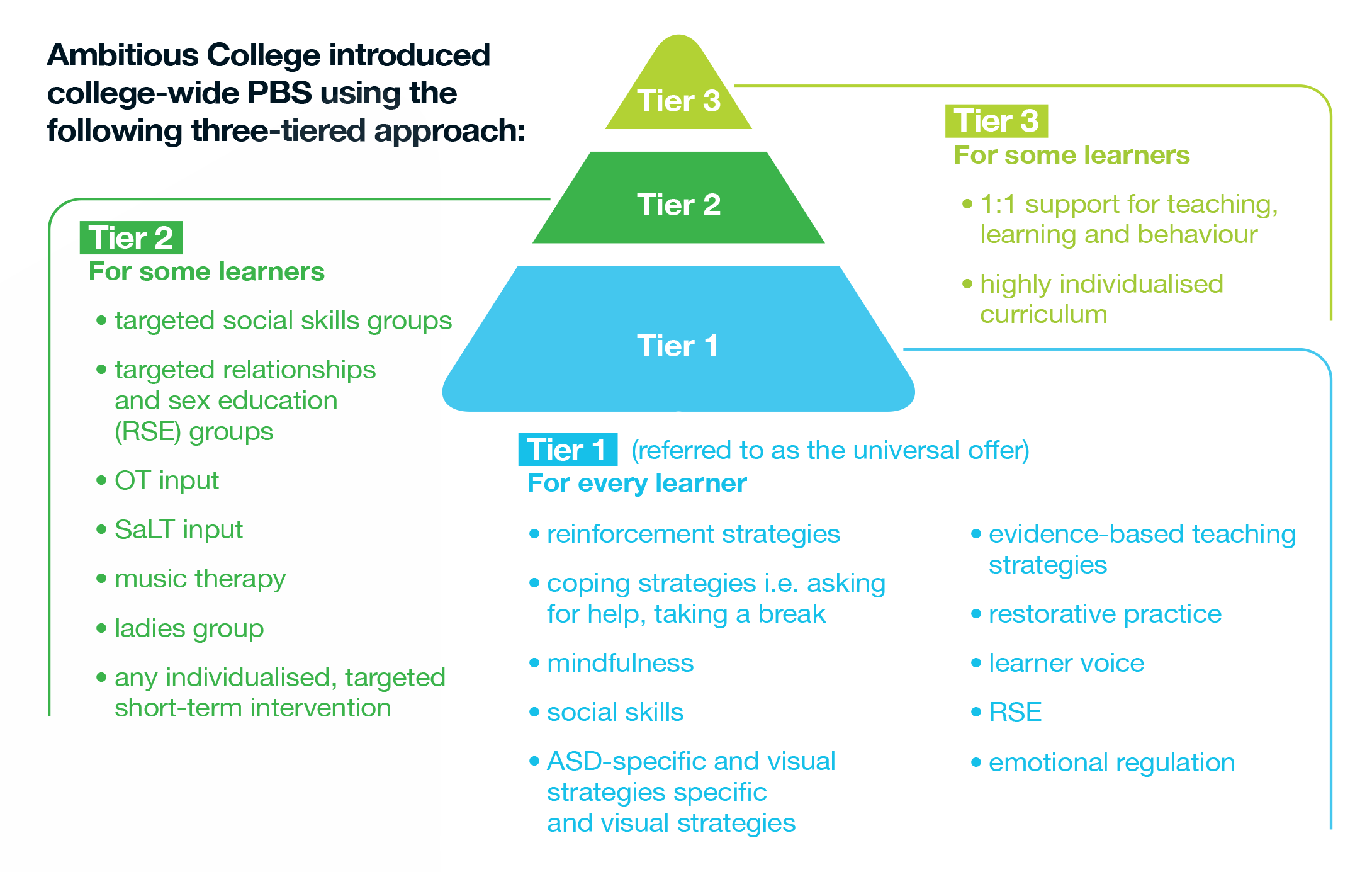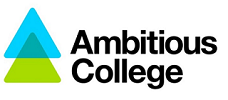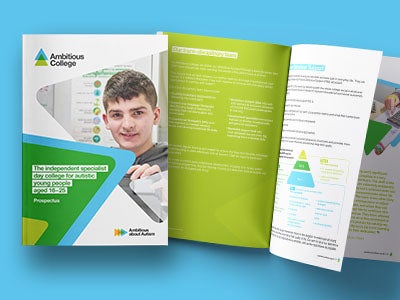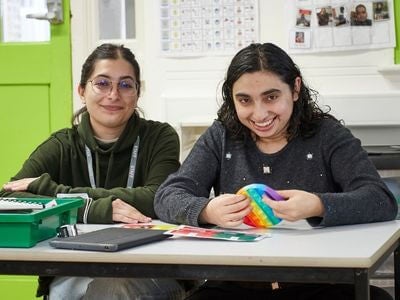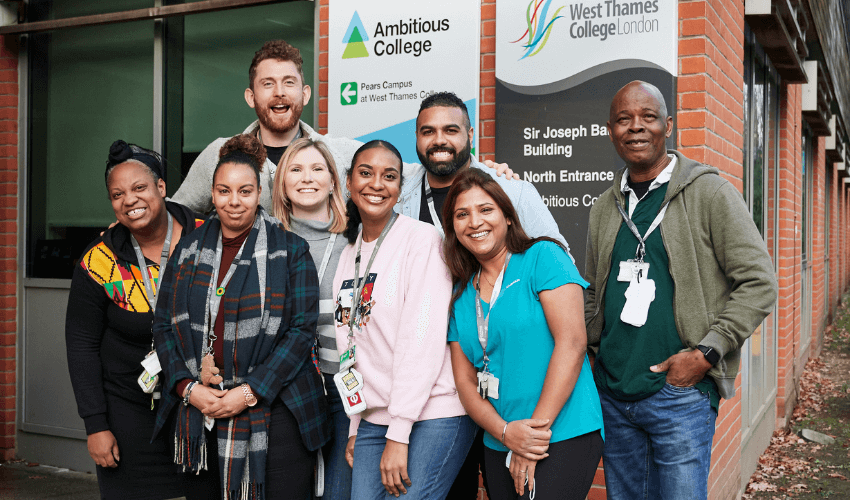
At Ambitious College, we deliver our Ambitious Approach through a trans-disciplinary team. With trans-disciplinary team working, the learner is the central focus at all times.
This means that at each campus, our staff team is made up of a range of professionals, each trained in a different discipline. They work together to come up with personalised approaches to learning and support.
Our trans-disciplinary team roles include:
- qualified teachers responsible for delivering the curriculum
- Speech and Language Therapists (SaLTs) who support learners to develop their communication and social skills
- Occupational Therapists (OTs) who help learners to manage sensory issues and develop functional life skills
- Behaviour Analysts (BAs) who work with learners to overcome behaviours that could create barriers to learning
- Employment specialists who support learners to develop vocational skills and gain work experience
- Specialist support staff who work alongside learners every day, supporting them to develop and learn new skills.
All staff receive regular training and support to ensure that they have the skills, knowledge and understanding to work effectively with all learners. Staff are regularly supervised and supported.
We also invest in continuous professional development, including an in-house, autism-specific training programme, teacher training, training and talks from external experts, and the opportunity for postgraduate study.
Find out more and meet the trans-disciplinary teams across both of our campuses.
Positive Behavioural Support
Our staff support our learners to acquire new skills and take part in everyday life. They do this through a college-wide Positive Behaviour Support (PBS) approach.
College-wide PBS is a framework for delivering both the whole college social culture and additional tiers of behaviour support needed to improve educational and social outcomes for all learners.
In practice, this means providing support that is:
- personalised for each individual
- based on an understanding of how each young person learns and what their behaviours of concern mean to them
- planned, implemented and monitored consistently
- evidence based
- proactive and uses the least restrictive approaches.
This approach helps our learners overcome behaviours of concern and provides more opportunities for them to learn effectively and achieve long-term goals.
We use the three-tiered support framework shown in the diagram to make sure all young people learn new skills that will enhance their quality of life. Our aim for all of our learners is that they lead their lives as independently as possible, with as few restrictions as possible.
